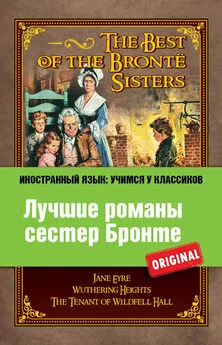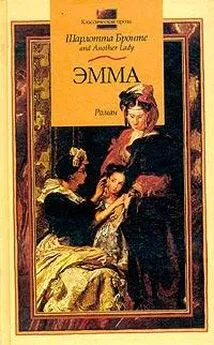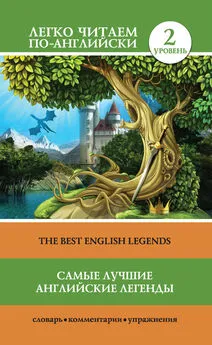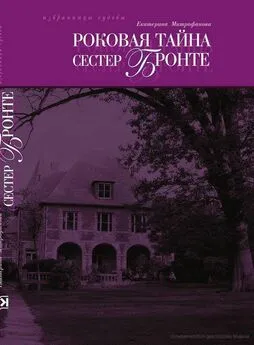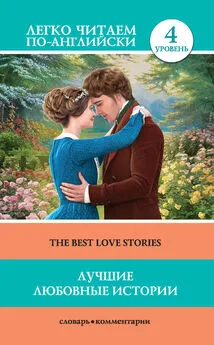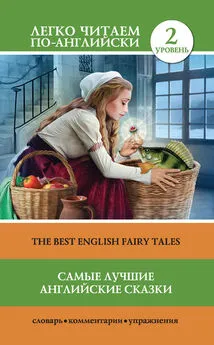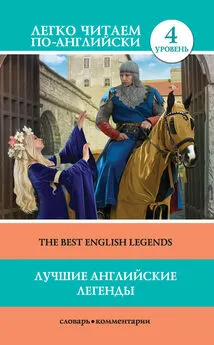Шарлотта Бронте - Лучшие романы сестер Бронте / The best of the Brontë sisters
- Название:Лучшие романы сестер Бронте / The best of the Brontë sisters
- Автор:
- Жанр:
- Издательство:Литагент «Эксмо»334eb225-f845-102a-9d2a-1f07c3bd69d8
- Год:2013
- Город:Москва
- ISBN:978-5-699-61892-7
- Рейтинг:
- Избранное:Добавить в избранное
-
Отзывы:
-
Ваша оценка:
Шарлотта Бронте - Лучшие романы сестер Бронте / The best of the Brontë sisters краткое содержание
«Иностранный язык: учимся у классиков» – это только оригинальные тексты лучших произведений мировой литературы. Эти книги станут эффективным и увлекательным пособием для изучающих иностранный язык на хорошем «продолжающем» и «продвинутом» уровне. Они помогут эффективно расширить словарный запас, подскажут, где и как правильно употреблять устойчивые выражения и грамматические конструкции, просто подарят радость от чтения. В конце книги дана краткая информация о культуроведческих, страноведческих, исторических и географических реалиях описываемого периода, которая поможет лучше ориентироваться в тексте произведения.
Серия «Иностранный язык: учимся у классиков» адресована широкому кругу читателей, хорошо владеющих английским языком и стремящихся к его совершенствованию.
Лучшие романы сестер Бронте / The best of the Brontë sisters - читать онлайн бесплатно ознакомительный отрывок
Интервал:
Закладка:
‘Well, I think he’s about as good as she is,’ said I. ‘But when Mr. Huntingdon is married, he won’t have many opportunities of consorting with his bachelor friends; – and the worse they are, the more I long to deliver him from them.’
‘To be sure, my dear; and the worse he is, I suppose, the more you long to deliver him from himself.’
‘Yes, provided he is not incorrigible – that is, the more I long to deliver him from his faults – to give him an opportunity of shaking off the adventitious evil got from contact with others worse than himself, and shining out in the unclouded light of his own genuine goodness – to do my utmost to help his better self against his worse, and make him what he would have been if he had not, from the beginning, had a bad, selfish, miserly father, who, to gratify his own sordid passions, restricted him in the most innocent enjoyments of childhood and youth, and so disgusted him with every kind of restraint; – and a foolish mother who indulged him to the top of his bent, deceiving her husband for him, and doing her utmost to encourage those germs of folly and vice it was her duty to suppress, – and then, such a set of companions as you represent his friends to be – ’
‘Poor man!’ said she, sarcastically, ‘his kind have greatly wronged him!’
‘They have!’ cried I – ‘and they shall wrong him no more – his wife shall undo what his mother did!’
‘Well,’ said she, after a short pause, ‘I must say, Helen, I thought better of your judgment than this – and your taste too. How you can love such a man I cannot tell, or what pleasure you can find in his company; for “what fellowship hath light with darkness; or he that believeth with an infidel?”’ [190]
‘He is not an infidel; – and I am not light, and he is not darkness; his worst and only vice is thoughtlessness.’
‘And thoughtlessness,’ pursued my aunt, ‘may lead to every crime, and will but poorly excuse our errors in the sight of God. Mr. Huntingdon, I suppose, is not without the common faculties of men: he is not so light-headed as to be irresponsible: his Maker has endowed him with reason and conscience as well as the rest of us; the Scriptures are open to him as well as to others; – and “if he hear not them, neither will he hear though one rose from the dead.” And remember, Helen,’ continued she, solemnly, ‘“the wicked shall be turned into hell, and they that forget God!”’ And suppose, even, that he should continue to love you, and you him, and that you should pass through life together with tolerable comfort – how will it be in the end, when you see yourselves parted for ever; you, perhaps, taken into eternal bliss, and he cast into the lake that burneth with unquenchable fire – there for ever to – ’
‘Not for ever,’ I exclaimed, ‘“only till he has paid the uttermost farthing;” for “if any man’s work abide not the fire, he shall suffer loss, yet himself shall be saved, but so as by fire;” and He that “is able to subdue all things to Himself will have all men to be saved,” and “will, in the fulness of time, gather together in one all things in Christ Jesus, who tasted death for every man, and in whom God will reconcile all things to Himself, whether they be things in earth or things in heaven.”’
‘Oh, Helen! where did you learn all this?’
‘In the Bible, aunt. I have searched it through, and found nearly thirty passages, all tending to support the same theory.’
‘And is that the use you make of your Bible? And did you find no passages tending to prove the danger and the falsity of such a belief?’
‘No: I found, indeed, some passages that, taken by themselves, might seem to contradict that opinion; but they will all bear a different construction to that which is commonly given, and in most the only difficulty is in the word which we translate “everlasting” or “eternal.” I don’t know the Greek, but I believe it strictly means for ages, and might signify either endless or long-enduring. And as for the danger of the belief, I would not publish it abroad if I thought any poor wretch would be likely to presume upon it to his own destruction, but it is a glorious thought to cherish in one’s own heart, and I would not part with it for all the world can give!’
Here our conference ended, for it was now high time to prepare for church. Everyone attended the morning service, except my uncle, who hardly ever goes, and Mr. Wilmot, who stayed at home with him to enjoy a quiet game of cribbage. In the afternoon Miss Wilmot and Lord Lowborough likewise excused themselves from attending; but Mr. Huntingdon vouchsafed to accompany us again. Whether it was to ingratiate himself with my aunt I cannot tell, but, if so, he certainly should have behaved better. I must confess, I did not like his conduct during service at all. Holding his prayer-book upside down, or open at any place but the right, he did nothing but stare about him, unless he happened to catch my aunt’s eye or mine, and then he would drop his own on his book, with a puritanical air of mock solemnity that would have been ludicrous, if it had not been too provoking. Once, during the sermon, after attentively regarding Mr. Leighton for a few minutes, he suddenly produced his gold pencil-case and snatched up a Bible. Perceiving that I observed the movement, he whispered that he was going to make a note of the sermon; but instead of that, as I sat next him, I could not help seeing that he was making a caricature of the preacher, giving to the respectable, pious, elderly gentleman, the air and aspect of a most absurd old hypocrite. And yet, upon his return, he talked to my aunt about the sermon with a degree of modest, serious discrimination that tempted me to believe he had really attended to and profited by the discourse.
Just before dinner my uncle called me into the library for the discussion of a very important matter, which was dismissed in few words.
‘Now, Nell,’ said he, ‘this young Huntingdon has been asking for you: what must I say about it? Your aunt would answer “no” – but what say you?’
‘I say yes, uncle,’ replied I, without a moment’s hesitation; for I had thoroughly made up my mind on the subject.
‘Very good!’ cried he. ‘Now that’s a good honest answer – wonderful for a girl! – Well, I’ll write to your father to-morrow. He’s sure to give his consent; so you may look on the matter as settled. You’d have done a deal better if you’d taken Wilmot, I can tell you; but that you won’t believe. At your time of life, it’s love that rules the roast [191]: at mine, it’s solid, serviceable gold. I suppose now, you’d never dream of looking into the state of your husband’s finances, or troubling your head about settlements, or anything of that sort?’
‘I don’t think I should.’
‘Well, be thankful, then, that you’ve wiser heads to think for you. I haven’t had time, yet, to examine thoroughly into this young rascal’s affairs, but I see that a great part of his father’s fine property has been squandered away; – but still, I think, there’s a pretty fair share of it left, and a little careful nursing may make a handsome thing of it yet; and then we must persuade your father to give you a decent fortune, as he has only one besides yourself to care for; – and, if you behave well, who knows but what I may be induced to remember you in my will!’ continued he, putting his fingers to his nose, with a knowing wink.
‘Thanks, uncle, for that and all your kindness,’ replied I.
‘Well, and I questioned this young spark on the matter of settlements,’ continued he; ‘and he seemed disposed to be generous enough on that point – ’
‘I knew he would!’ said I. ‘But pray don’t trouble your head – or his, or mine about that; for all I have will be his, and all he has will be mine; and what more could either of us require?’ And I was about to make my exit, but he called me back.
‘Stop, stop!’ cried he; ‘we haven’t mentioned the time yet. When must it be? Your aunt would put it off till the Lord knows when, but he is anxious to be bound as soon as may be: he won’t hear of waiting beyond next month; and you, I guess, will be of the same mind, so – ’
‘Not at all, uncle; on the contrary, I should like to wait till after Christmas, at least.’
‘Oh! pooh, pooh! never tell me that tale – I know better,’ cried he; and he persisted in his incredulity. Nevertheless, it is quite true. I am in no hurry at all. How can I be, when I think of the momentous change that awaits me, and of all I have to leave? It is happiness enough to know that we are to be united; and that he really loves me, and I may love him as devotedly, and think of him as often as I please. However, I insisted upon consulting my aunt about the time of the wedding, for I determined her counsels should not be utterly disregarded; and no conclusions on that particular are come to yet.
Chapter XXI
October 1st. – All is settled now. My father has given his consent, and the time is fixed for Christmas, by a sort of compromise between the respective advocates for hurry and delay. Milicent Hargrave is to be one bridesmaid and Annabella Wilmot the other – not that I am particularly fond of the latter, but she is an intimate of the family, and I have not another friend.
When I told Milicent of my engagement, she rather provoked me by her manner of taking it. After staring a moment in mute surprise, she said, – ‘Well, Helen, I suppose I ought to congratulate you – and I am glad to see you so happy; but I did not think you would take him; and I can’t help feeling surprised that you should like him so much.’
‘Why so?’
‘Because you are so superior to him in every way, and there’s something so bold and reckless about him – so, I don’t know how – but I always feel a wish to get out of his way when I see him approach.’
‘You are timid, Milicent; but that’s no fault of his.’
‘And then his look,’ continued she. ‘People say he’s handsome, and of course he is; but I don’t like that kind of beauty, and I wonder that you should.’
‘Why so, pray?’
‘Well, you know, I think there’s nothing noble or lofty in his appearance.’
‘In fact, you wonder that I can like anyone so unlike the stilted heroes of romance. Well, give me my flesh and blood lover, and I’ll leave all the Sir Herberts and Valentines to you – if you can find them.’
‘I don’t want them,’ said she. ‘I’ll be satisfied with flesh and blood too – only the spirit must shine through and predominate. But don’t you think Mr. Huntingdon’s face is too red?’
‘No!’ cried I, indignantly. ‘It is not red at all. There is just a pleasant glow, a healthy freshness in his complexion – the warm, pinky tint of the whole harmonising with the deeper colour of the cheeks, exactly as it ought to do. I hate a man to be red and white, like a painted doll, or all sickly white, or smoky black, or cadaverous yellow.’
‘Well, tastes differ – but I like pale or dark,’ replied she. ‘But, to tell you the truth, Helen, I had been deluding myself with the hope that you would one day be my sister. I expected Walter would be introduced to you next season; and I thought you would like him, and was certain he would like you; and I flattered myself I should thus have the felicity of seeing the two persons I like best in the world – except mamma – united in one. He mayn’t be exactly what you would call handsome, but he’s far more distinguished-looking, and nicer and better than Mr. Huntingdon; – and I’m sure you would say so, if you knew him.’
Читать дальшеИнтервал:
Закладка:
